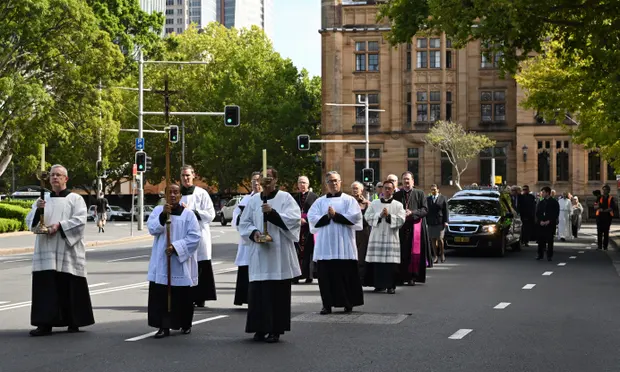As the late Cardinal George Pell was carried into St. Mary’s Cathedral in Sydney, Australia, for his funeral, activists gathered outside to show their opposition to his beliefs and to defend their democratic right to protest, despite a court order banning demonstrations near the cathedral.
The group, led by civil rights advocate David Stern, planned the demonstration to protest against Pell’s “arch defense of homophobia, sexism, and his belief that abortion is a worse moral scandal than priests abusing children,” as Stern stated. The protest organizers announced that they would proceed with their demonstration as planned, with the intention of marching as close to the cathedral as possible.
The court hearing to issue the ban on protests took place only hours before Pell’s body was carried into the cathedral, leaving the protest organizers with limited time to defend their case. In response, the President of the NSW Council for Civil Liberties, Josh Pallas, criticized the police court order, calling it a “blatant misuse of the court process” and “not a genuine attempt to preserve public safety.” He added that informing protest organizers “only the day before a planned protest” was “completely unacceptable” and “a blatant misuse of the court process”.
Pallas stated that the court order sought to “overwhelm protest organizers through the obvious disparity of legal resources, and practically limit their ability to defend the proceedings.” He further accused the NSW police of trying to do “tone-policing” and not genuinely preserve public safety.
Despite the ban, the protest went ahead, with supporters tying ribbons to the gates of the cathedral in representation of the voices of those affected by child sexual abuse by clergy. The demonstration, while peaceful, was a strong statement against the late Cardinal Pell’s beliefs and a show of support for those affected by clergy abuse.
In conclusion, the demonstration outside St. Mary’s Cathedral serves as a reminder of the ongoing fight for justice for survivors of clergy abuse and the defense of democratic rights, even in the face of opposition and court orders.

